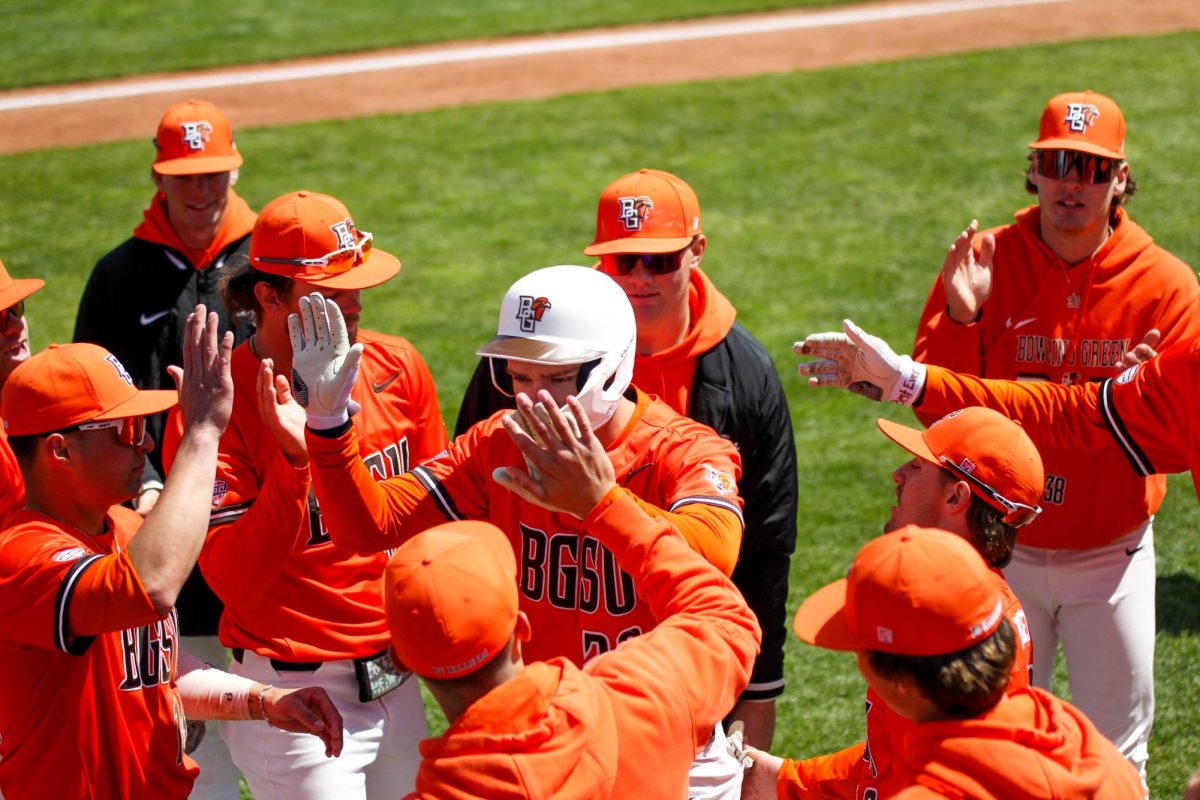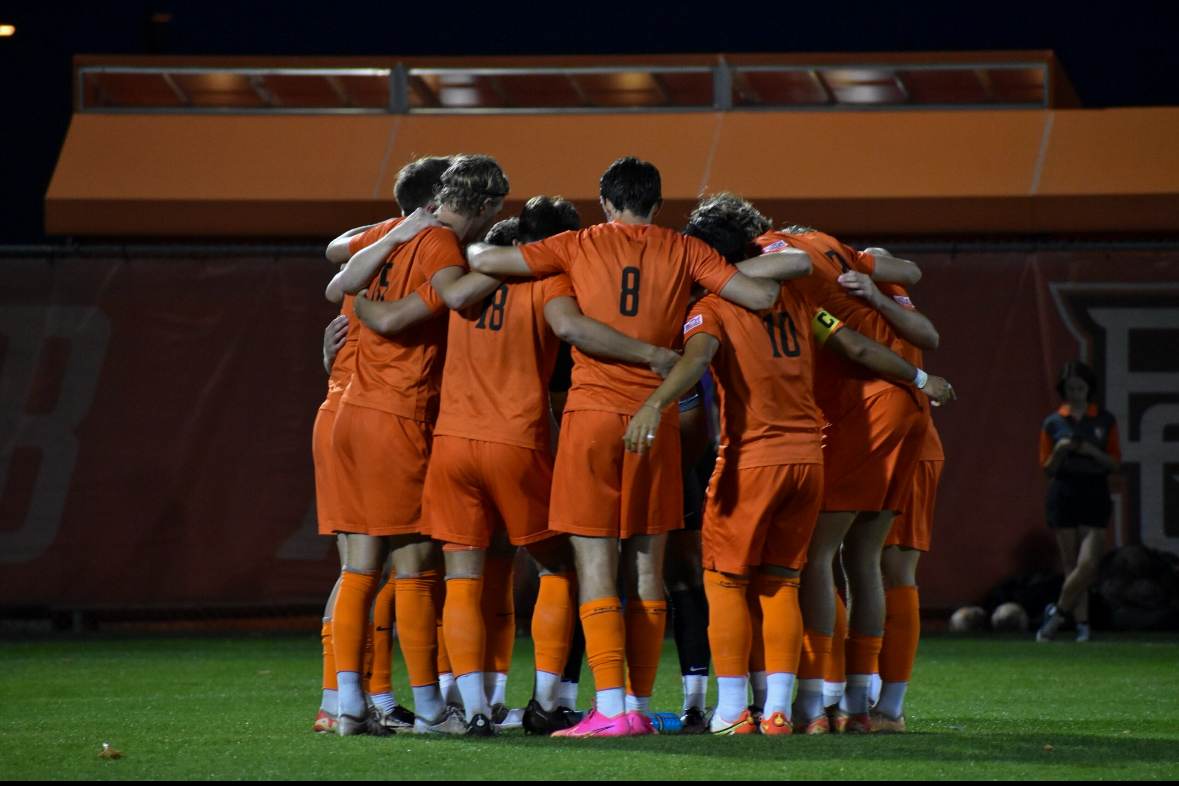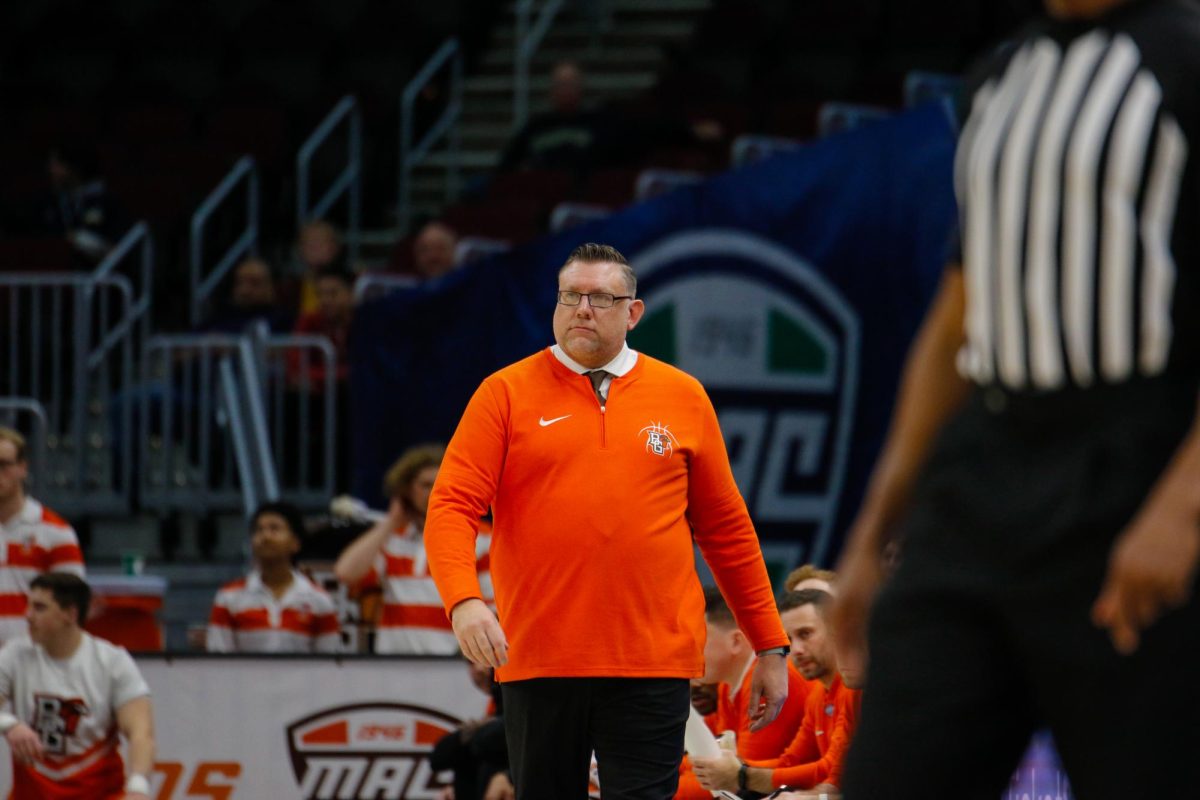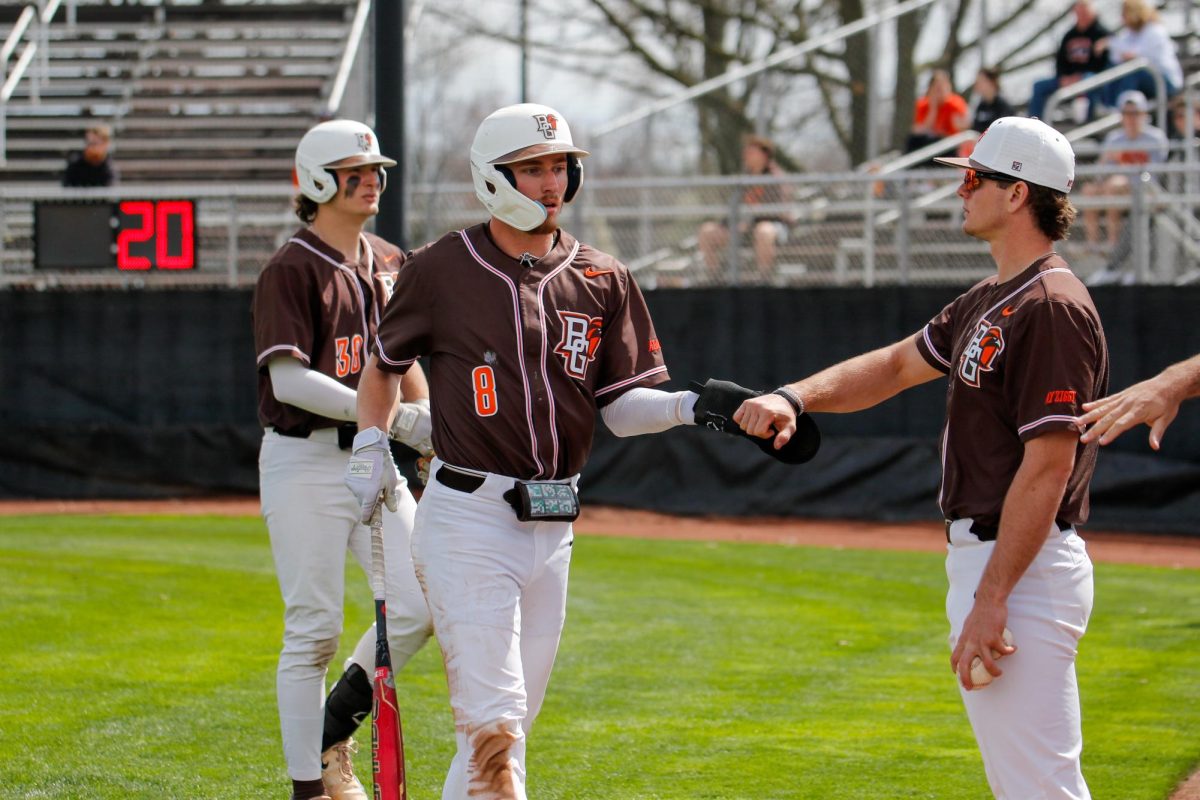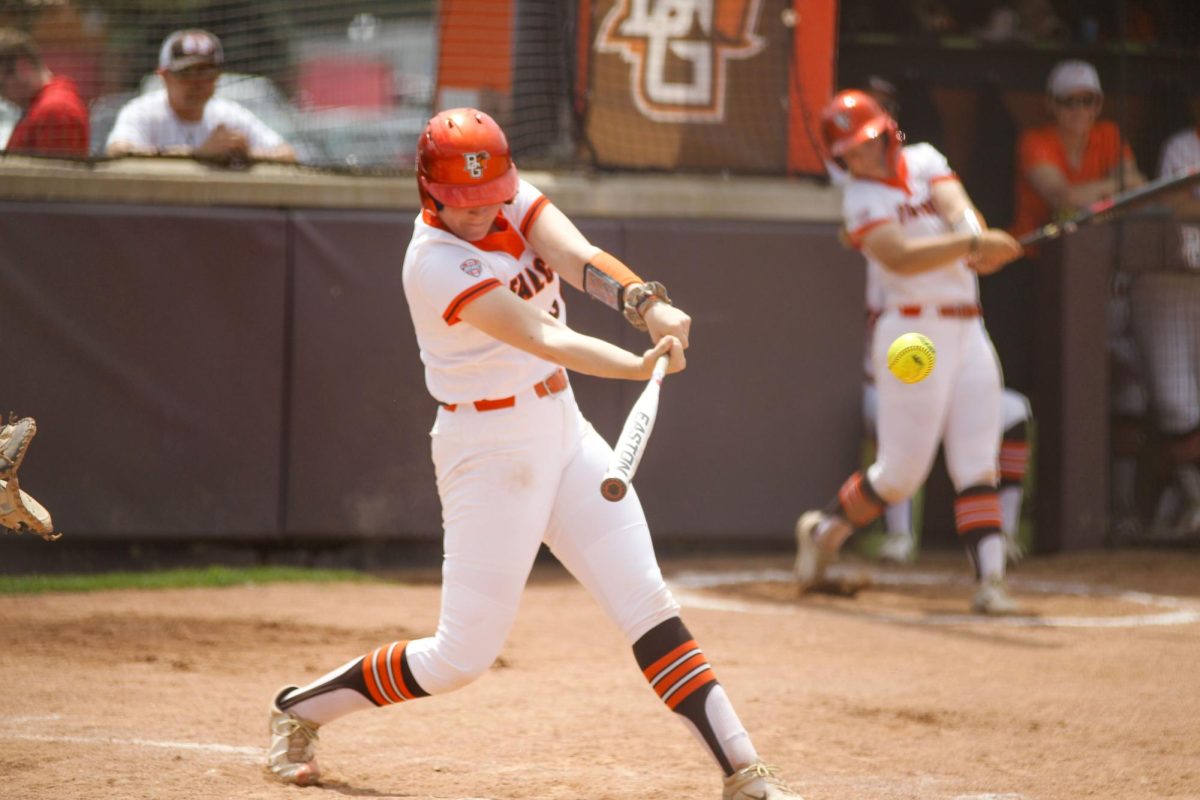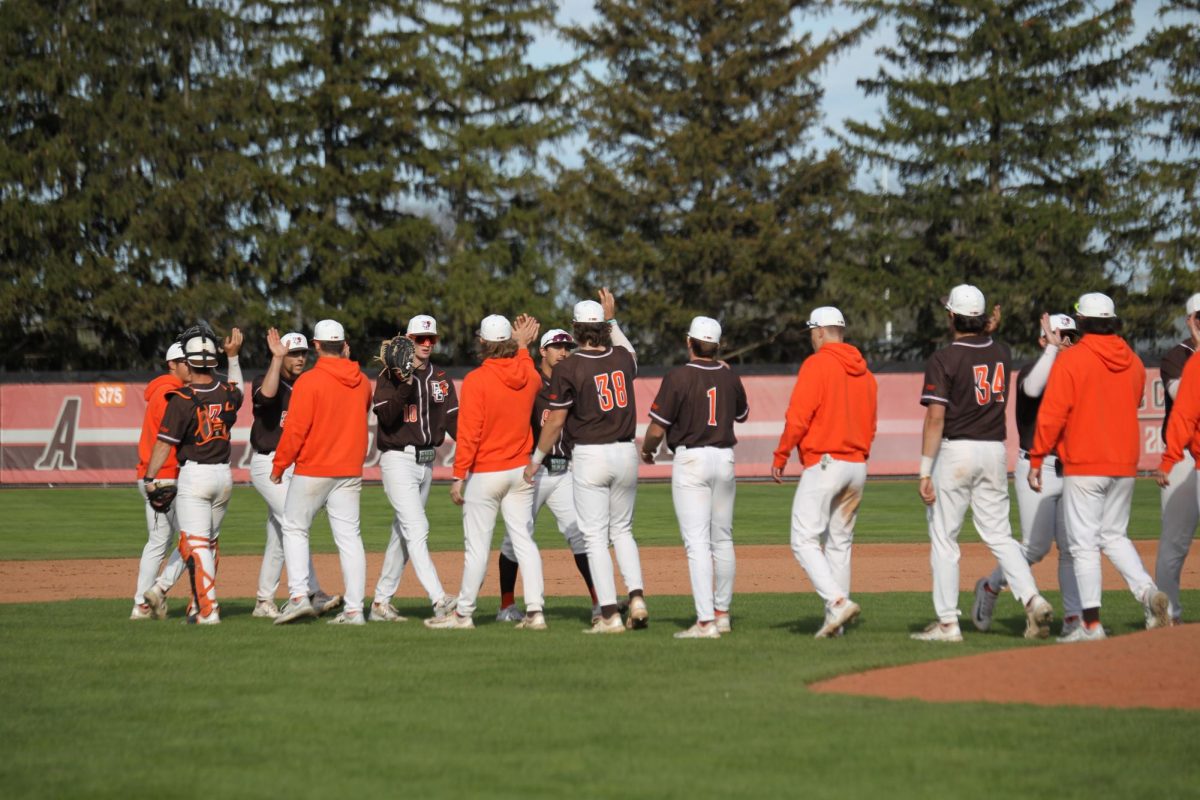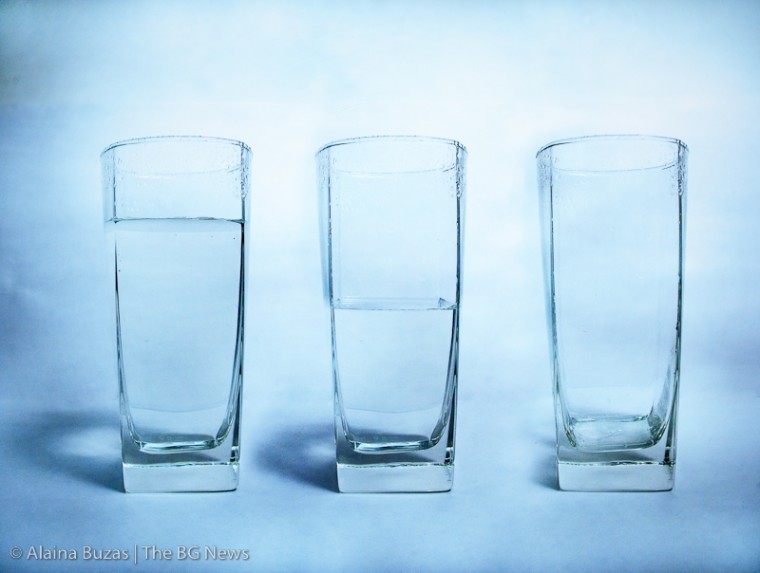There are places in the world that are running out of water, and they might soon turn to the Great Lakes.
According to the General Accounting office of U.S. Congress, within five years 36 states could be in a water crisis situation, including highly-populated California.
At the University, water is provided from the Maumee River through the Great Lakes.
The Great Lakes also provide water for over 40 million people in eight states: Ohio, Minnesota, Wisconsin, Illinois, Indiana, Michigan, New York and Pennsylvania, along with two Canadian provinces: Ontario and Québec.
Bob Midden, director of the Center of Science and Mathematics Education for the University’s region, said there have been propositions to use the water in the Great Lakes to help Western states without a local water source.
He said if the water was distributed to the states in need it would have adverse affects on the Great Lakes region.
The water would also have to be shipped to other places, filtered, cleaned and returned, according to the Alliance of the Great Lakes, an alliance for the eight states which keeps track of what is going on within the lakes.
“If they take the water out, it would affect the ecosystem of the lakes, along with shipping within the lakes,” he said.
Other freshwater sources such as the Colorado River provide water for much of the west, but the river has already reached its limit, he said.
Ed Glatfelter, water conservation director for the Alliance for the Great Lakes, said the states created a Compact to deal with the distribution of the water.
In the early 2000s, governors of the eight states met to decide how to regulate the water around the lake, he said. By 2005, they came up with a Compact, which was created to regulate how the states use the water in the lakes.
However, eight states could not create a Compact to include Canada, though Canada completed and signed its own parallel agreement in December 2005.
The Compact assures states come up with an action plan for both points of the Compact, including coming up with a water conservation program and a water management plan by December 2013, he said.
“We monitor the progress of the states,” he said. “Each state is at a different stage right now.”
For instance, Minnesota already has a conservation plan, while Ohio and New York appear to have no progress at all, he said. However, both states have special advising committees which are doing their work to ensure the states have a set plan.
The never ending water problem doesn’t just affect states having enough water to provide for their population, but it also affects the economy, he said.
“We need to increase the amount of goods to create wealth,” Midden said. “Otherwise we go into recession.”
Water conservation is not only a problem throughout the U.S., but also in many other countries.
While the U.S. has had 100 percent clean drinking water since the 1970s, other countries such as Nigeria suffer from only 31 percent of clean drinking water today, according to the Pacific Institute for the World’s Water.
Midden said it’s time for countries to look for alternative water sources, including turning salt water into drinking water.
“This process is extremely expensive,” he said. “The fuel costs for something like that are just enormous.”
The Middle East, however, has oil wealth and therefore can afford to buy water done through this process, he said.
“Barring a cheaper fuel source and the depletion of the Great Lakes, decisions are going to have to be made on how to limit water,” he said.
The next step besides water conservation is population location, or how much population an area should have that it can sustain on the water supply.
“This could lead to war in the future,” Midden said. “It’s not going to be easy to decide.”
While the forthcoming water crisis is still the future for states around the lakes, it is the present for other nations.
Midden said the final question is, “Should it be a matter of water moving, or people moving?”






